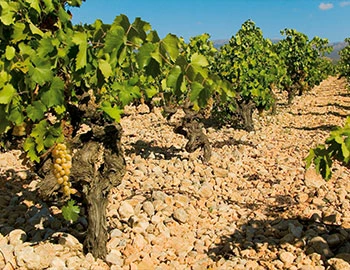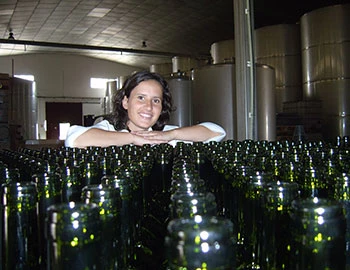Altos de la Hoya 2021
DO Jumilla, Olivares, 750 ml

| Grape variety: | Monastrell, Garnacha |
| Producer: | Bodegas Olivares / Paco Selva |
| Origin: | Spain / Murcia / Jumilla |
Description
Dark purple colour with ruby tinge. On the nose, dense, concentrated, dark berry flavours and spices that blend well with the vanilla aroma from oak. On palate it is full-bodied with soft, elegant tannins that are well integrated with the flavours of fresh fruit.
Attributes
| Origin: | Spain / Murcia / Jumilla |
| Grape variety: | Monastrell, Garnacha |
| Label: | Vegan |
| Ripening potential: | 1 to 6 years |
| Drinking temperature: | 16 to 18 °C |
| Food Pairing: | Roasted lamb gigot, Spiced grillades, Goulash, boeuf bourguignon |
| Vinification: | cooling period, fermentation in steel tank |
| Harvest: | hand-picking, strict selection |
| Maturation: | in large wooden barrel/foudre, in partly new and used barriques/ Pièces |
| Maturation duration: | 6 months |
| Volume: | 14.5 % |
| Note: | Contains sulphites |
Bodegas Olivares / Paco Selva
Garnacha
Grenache seldom comes alone
Spaniards and Sardinians make the Grenache contentious: both claim it originated from their country. In fact, it had already appeared in both places by the 16th century. But a large number of mutations in Spain indicates that it has deeper roots on the Iberian Peninsula. The Grenache is meaty, rich in tannins and spicy, with a wonderful, fruity sweetness and rich aromas of blackberry, cassis, plums and pepper. Under the name Garnacha, it contributes fullness to the Rioja. In Sardinia it is called Cannonau, where it yields strong, expressive wines. But its stronghold is in France. Grenache is the star in Châteauneuf-du-Pape and streams into many other assemblages from the south. Its preferred partners are Syrah and Mourvèdre. This blend is also very popular abroad. In Australia, these wines are simply called "GSM".
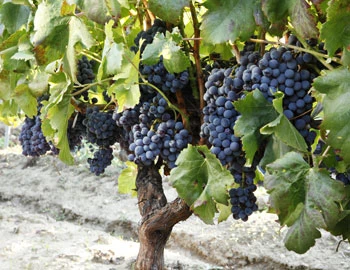
Monastrell
Hot-blooded Spaniard
It cannot be hot enough for the Monastrell grape. It grows around the Mediterranean, where the summers are long and hot and the winters mild. At only 200 metres in elevation, or 80 kilometres from the coast, its grapes have problems ripening. It was likely born in the Valencia region. According to written records, it was already counted among the most important varieties in 1460. Its exact origin is thought to be the Camp de Morvedre area. From there, it migrated in the 17th century to Provence, where it was christened Mourvèdre. Its wines are deeply dark, with intense blackberry aromas, rich tannins and moderate acidity. They enter into the most beautiful harmonies with other varieties from the south, such as Garnacha, Carignan or Syrah. The Mourvèdre is the main ingredient of red wines of Bandol; it also flows into the Châteauneuf-du-Pape. On the Spanish Levante coast, it is also pressed solo.
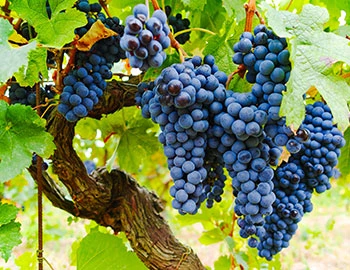
Jumilla
Jumilla: The home of Monastrell
Discoveries of grape seeds dating to the third millennium BCE indicate that Jumilla is among the oldest viticultural regions in the Iberian Peninsula. Today, more than 80 percent of the total cultivation area of 25,000 hectares is planted with the long-established Monastrell variety. Thanks to moderate watering, a tendency for early harvesting and modern cellar techniques, Monastrell wines produced here today have a great deal of fruit-accented charm and good structure.
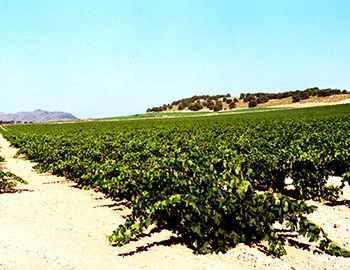
Murcia
Murcia: Home to the Monastrell variety
The city of Murcia is scarcely known outside of Spain; however, with nearly 500,000 inhabitants, it is the powerful center of a rural region. Fruit, vegetable and wine cultivation are still important economic factors here. In the three wine-growing areas located in the autonomous region of Murcia – Bullas, Jumilla and Yecla – the Monastrell variety demonstrates that it can produce wines of varying character.
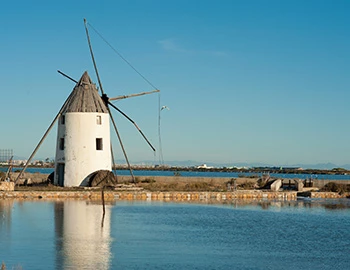
Spain
Spain – Variety and perfection
“Somewhere in la Mancha, in a place whose name I do not care to remember...,” begins Don Quixote's odyssey.
The most famous part is definitely when Don Quixote thinks windmills are his enemy and wants to fight them – until they nearly kill him. It’s possible there was a bit too much of the La Mancha wine at play. Spanish vines fight for their survival in rugged landscapes, battling fierce drought and rough soils. But they fight well.
